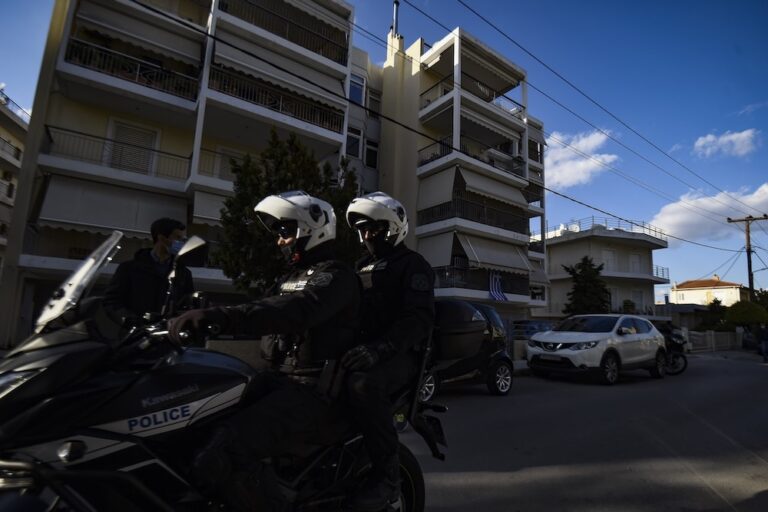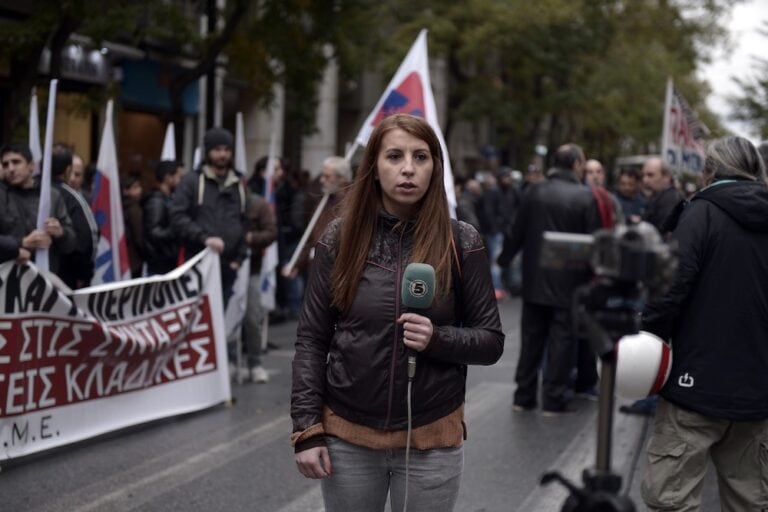In a joint statement, IFEX members in the European Union and its 'neighbourhood' states call upon authorities to protect freedom of expression in Greece.
UPDATE: In a follow-up joint action led by Index on Censorship, nine IFEX members called on the EU for its support in the case of Greek editor Kostas Vaxevanis facing re-trial and prison (Index on Censorship, 23 November 2012.)
The original joint action follows.
(Index on Censorship/IFEX) – 5 November 2012 – The following is an appeal by IFEX members in the European Union and its ‘neighbourhood’ states, calling on authorities to protect freedom of expression in Greece:
To:
• Herman Van Rompuy, President of the European Council
• Martin Schulz, President of the European Parliament
• José Manuel Barroso, President of the European Commission
• Neelie Kroes, Vice-President of the European Commission
• Štefan Füle, Commissioner for Enlargement and European Neighbourhood Policy
• Antonis Samaras, Prime Minister of the Hellenic Republic
As freedom of expression rights organisations based in the European Union member states, the nations of the European Neighbourhood Policy, Eastern Partnership and Mediterranean Union and members of the International Freedom of Expression Exchange (IFEX), we welcome the decision of an Athens court to acquit Greek investigative journalist Kostas Vaxevanis. Mr. Vaxevanis had named alleged account holders in an offshore bank that had been protected from tax investigation for two years.
Despite the positive outcome, we would still like to express our concern at the decision of the Greek authorities to bring Mr. Vaxevanis to court and his treatment in the run up to that hearing. The charge should never have been made, let alone brought to court. We also note that another Greek journalist, Spiros Karatzaferis, was also arrested this week on an old, unrelated criminal libel charge after claiming he would publish classified documents relating to Greece’s financial bailout.
We urge European Union institutions to make a clear stand in favour of freedom of expression and publication in the public interest in Greece. Under the Lisbon Treaty, the compliance with the EU Charter of Fundamental Rights is legally binding on EU members. This includes the right under Article 11 “to receive and impart information and ideas without interference by public authority and regardless of frontiers,” and the obligation that that “the freedom and pluralism of the media shall be respected.”
As the Commission itself noted in the context of implementing the Charter, “the Union itself must be exemplary in order to: enable people living in the Union to enjoy the rights enshrined in the charter; build mutual trust between EU countries; build public confidence in EU policies; improve credibility of EU external action on human rights.”
We note the Union and the Commission’s willingness to defend freedom of expression of the media in the past, inside and outside the Union member states – notably in using its competences in the case of Hungary in 2011 – and in its conditional relations with members of the Eastern Partnership and Mediterranean Union.
Accordingly, we call on the Council of Ministers, European Parliament and the European Commission to ensure that Greece’s binding commitments to freedom of expression are not breached by further pursuing Mr. Vaxevanis or other journalists throughout the Greek courts, and there should be no successor attempt to penalise him or others for reporting issues of public concern, including possible corruption or bureaucratic wrongdoing.
Respectfully yours,
South East Europe Media Organisation (SEEMO)


